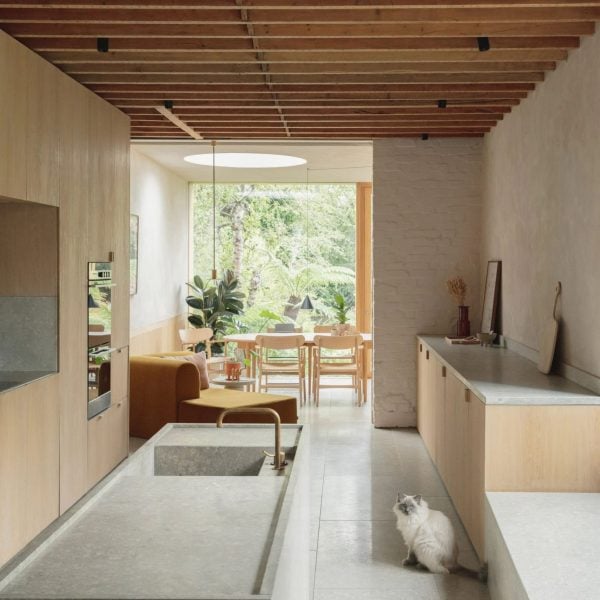For our newest lookbook we have gathered eight London houses which have traded in unused backyard area for modern and light-filled residing areas.
Rear extensions are a preferred choice for remodeling the pokey facet returns and galley kitchens of Victorian and Edwardian housing, profuse in lots of areas of London.
The eight examples beneath showcase how extensions can convey modern aptitude to a extra conventional dwelling and optimise residing area for entertaining, enjoyable and cooking.
That is the newest in our lookbooks collection, which offers visible inspiration from Dezeen’s archive. For extra inspiration, see earlier lookbooks that includes soothing cabin interiors, kitchens with modern steel particulars and residing rooms with warming fireplaces.
Victorian terrace home, UK, by Oliver Leech Architects
Oliver Leech Architects retained this behind schedule Nineteenth-century constructing’s character whereas opening up the “disconnected and obscure” inside of this Victorian terrace home in Herne Hill.
Prioritising pure mild, the studio expanded the bottom flooring to incorporate an open residing, eating and kitchen area, assembly the present constructing with a immense skylight and window seat.
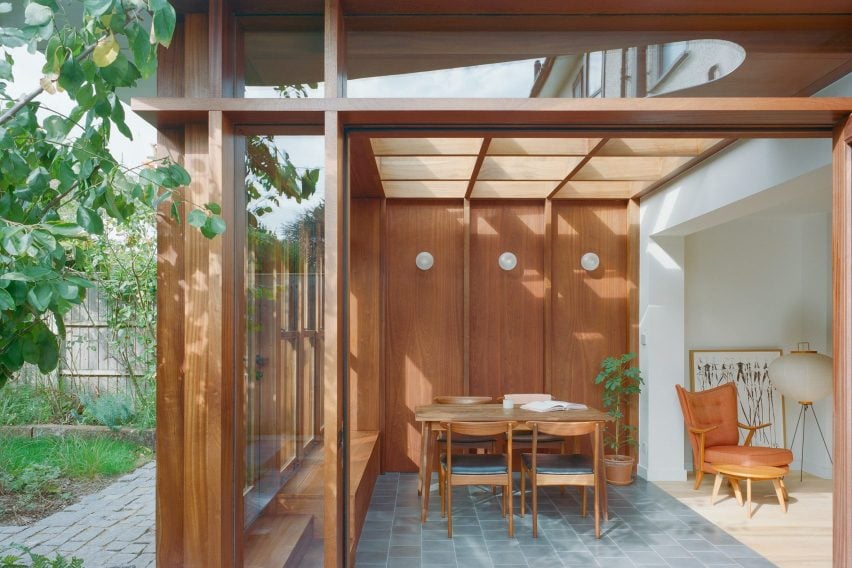
Clear Aspect Up, UK, by THISS Studio
THISS Studio approached this extension in east London as if it had been a bit of furnishings reasonably than a standard construction.
“We wished to think about the fresh addition at a home scale and extra like a bit of furnishings that you would be able to sit inside and revel in, reasonably than a typical extension of the present areas,” THISS Studio advised Dezeen.
The apply reconfigured the obscure inside of this interwar home which options timber joinery and a light-filled eating area.
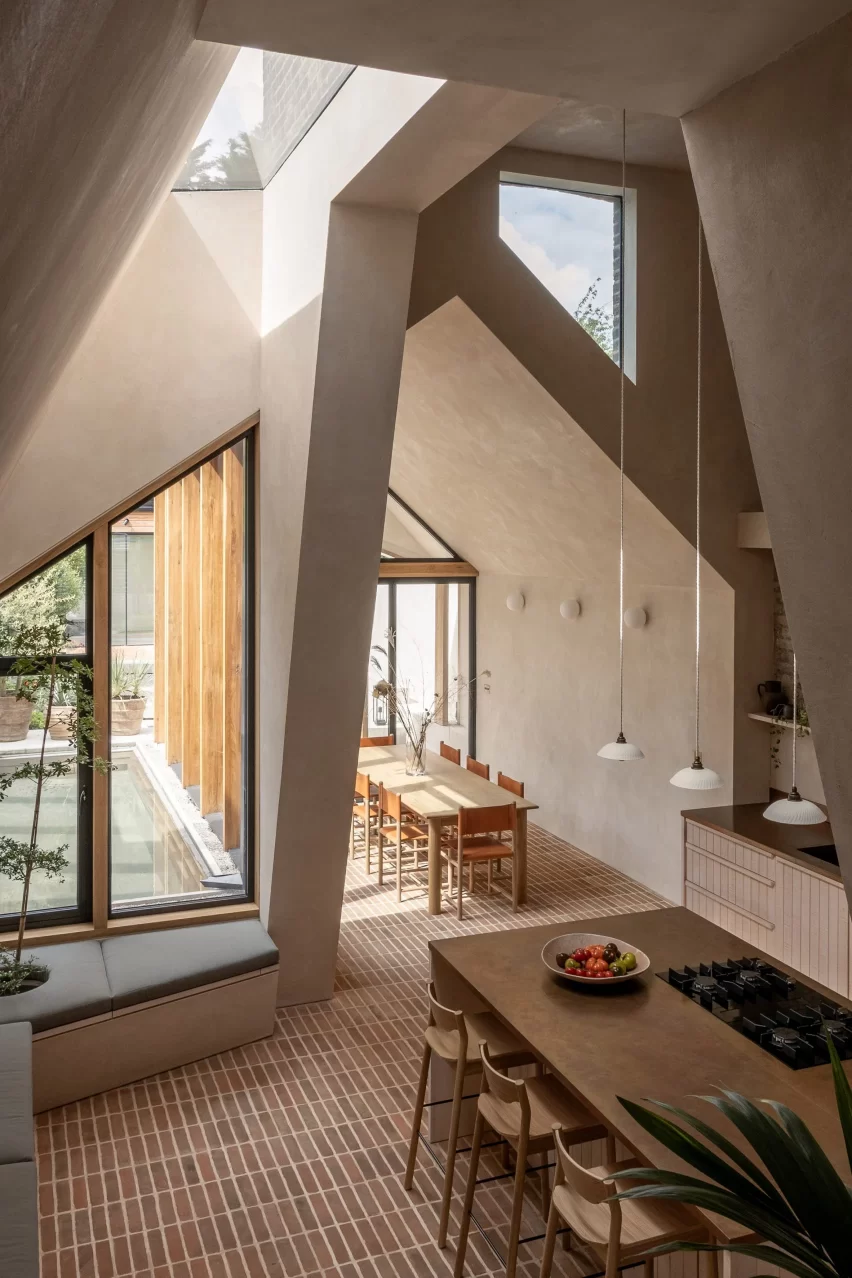
Moroccan impressed home, UK, by Merrett Houmøller Architects and All & Nxthing
The consumer’s intensive travels to Morocco and the Mediterranean impressed this rear extension in London.
Merrett Houmøller Architects and inside designer All & Nxthing renovated and prolonged this Victorian dwelling with clay-plaster partitions, uncovered brickwork and tile flooring to evoke the sensation of a Moroccan dwelling.
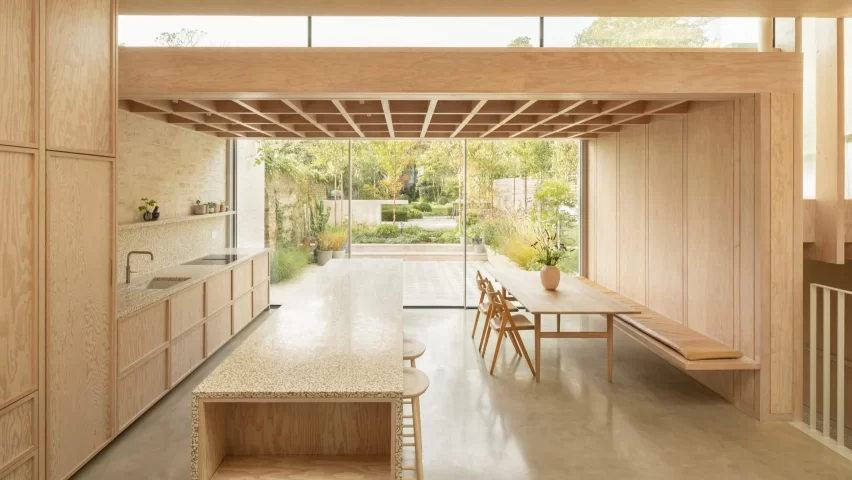
Heath Home, UK, by Proctor & Shaw
A dilapidated conservatory and awkwardly sized rooms had been swapped for a mild, wood-filled inside at this Grade II-listed villa in Highgate, north London.
Structure studio Proctor & Shaw prioritised pure mild and a pure materials palette of wooden and white brick for the above and below-ground extension in north London.
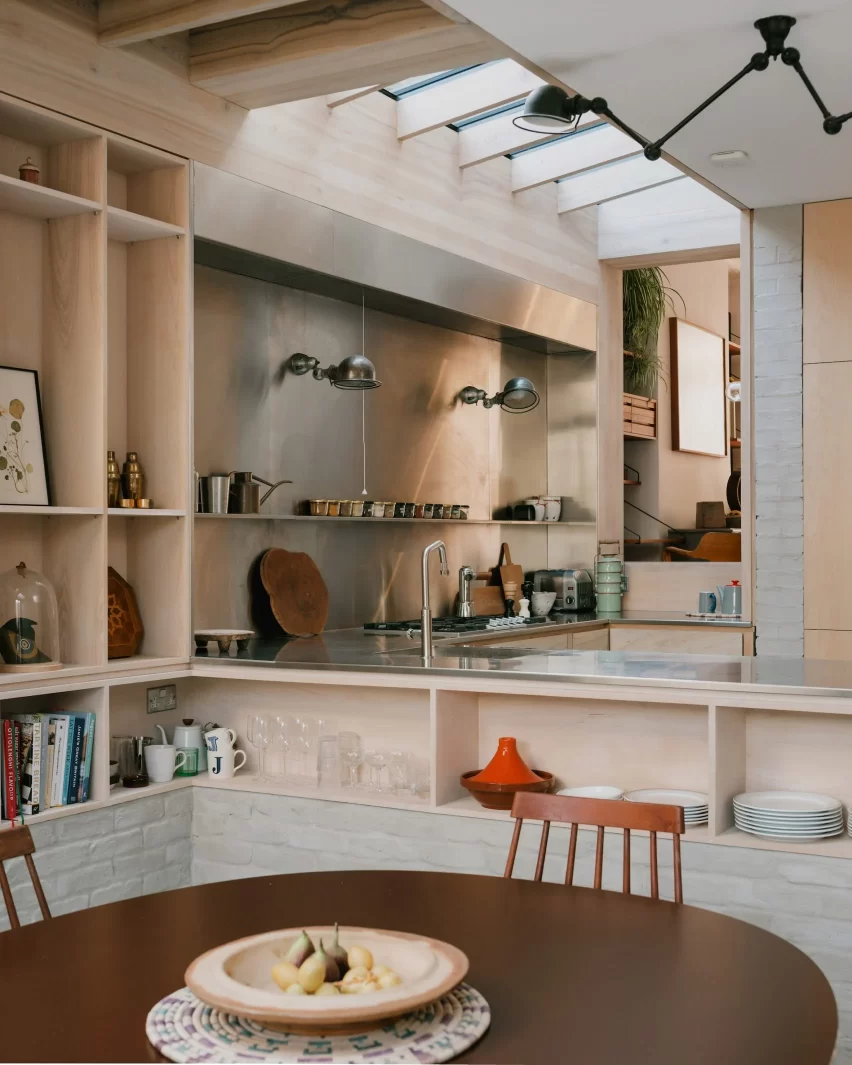
Magpie Home , UK, by DGN Studio
DGN Studio prolonged the kitchen of this east London terrace home by three metres to create “a extra cohesive and seamless sequence for residing, eating and cooking”.
The extension is illuminated by skylights between picket beams and includes a concrete window seat overlooking the backyard with the consumer’s furnishings and fittings integrated all through.
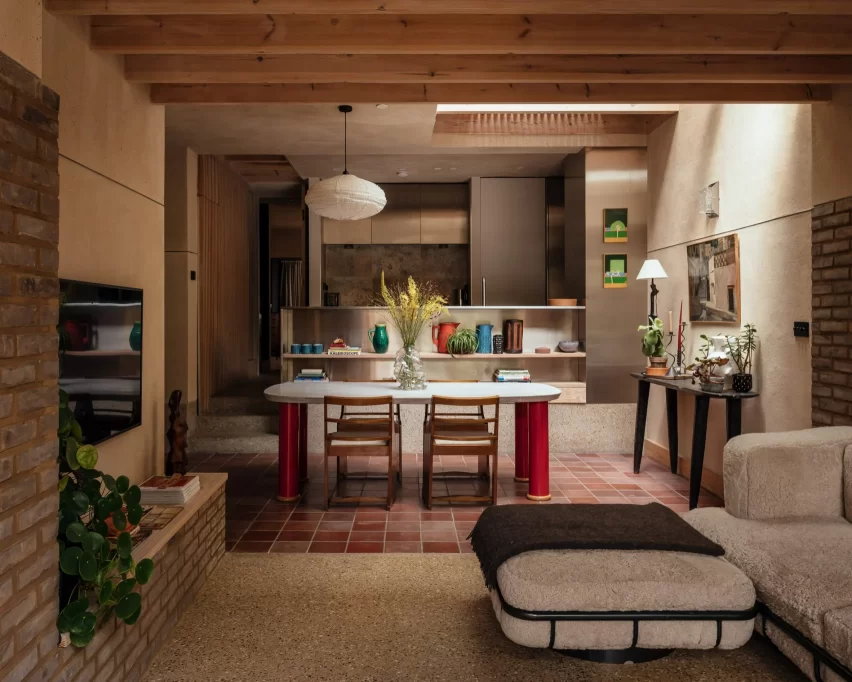
Victorian maisonette, UK, by Nimtim Architects
Douglas fir timber screens, uncovered brickwork and gritty plaster characterise this extension of a Victorian maisonette in Camberwell, south-east London.
Nimtim Architects responded to a quick calling for larger connectivity and openness within the dwelling to create a “place of reflection and sanctuary from the town”.
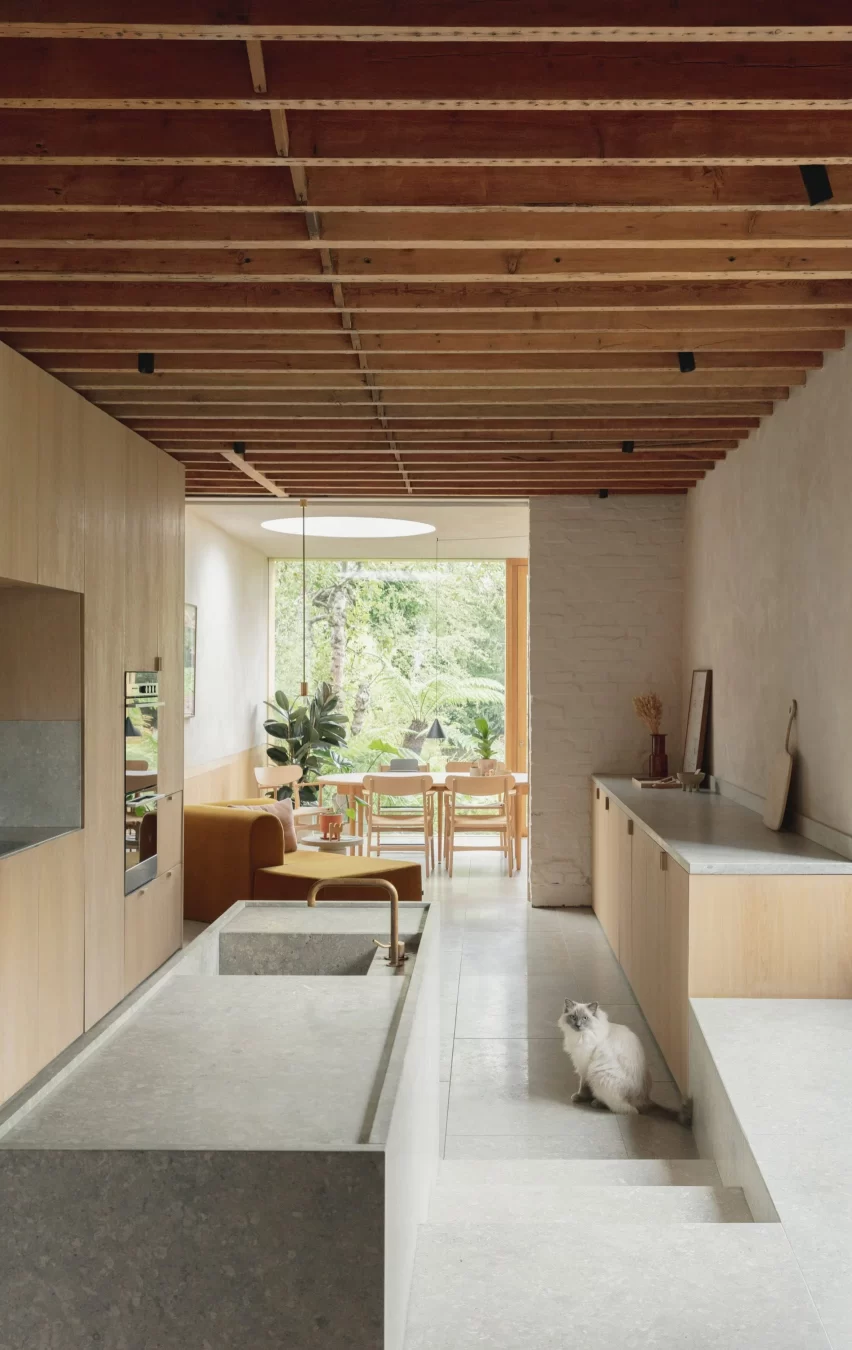
Edwardian dwelling, UK, by Structure for London
Structure for London reworked this Edwardian dwelling in Muswell Hill, which had been untouched for 40 years, utilizing solely sustainably minded interventions and pure supplies.
Created for the studio’s founder Ben Ridley, the home was renovated and prolonged to create a minimal inside characterised by oak wooden, stone and lime plaster.
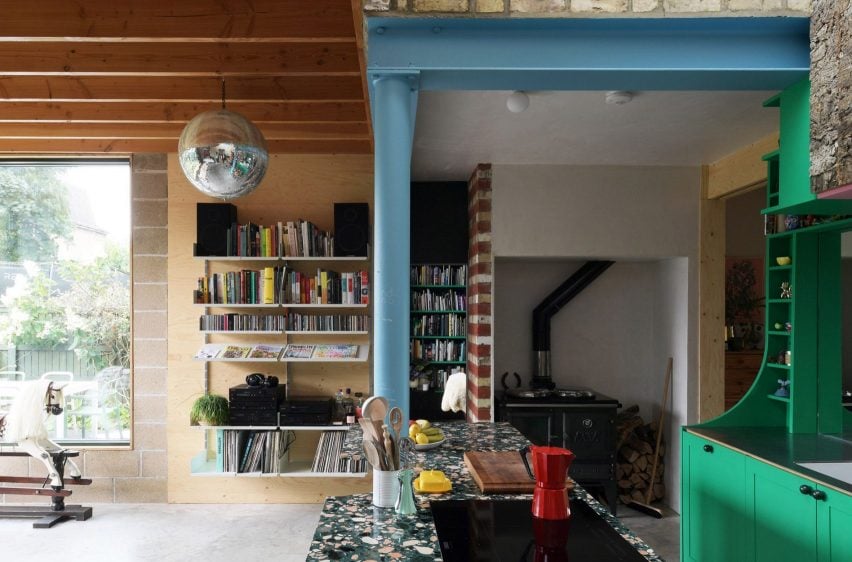
Gillian Lambert and Geoff Shearcroft of structure agency AOC wished so as to add character and a connection to close by Epping Forest when designing the entrance extension of their Victorian home in north London.
A single-storey storage was eliminated to create a collection of interconnected, playful residing areas that includes tactile supplies, uncovered block work and daring colors.


